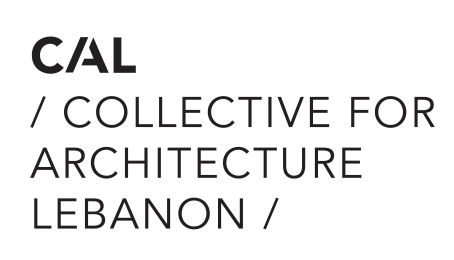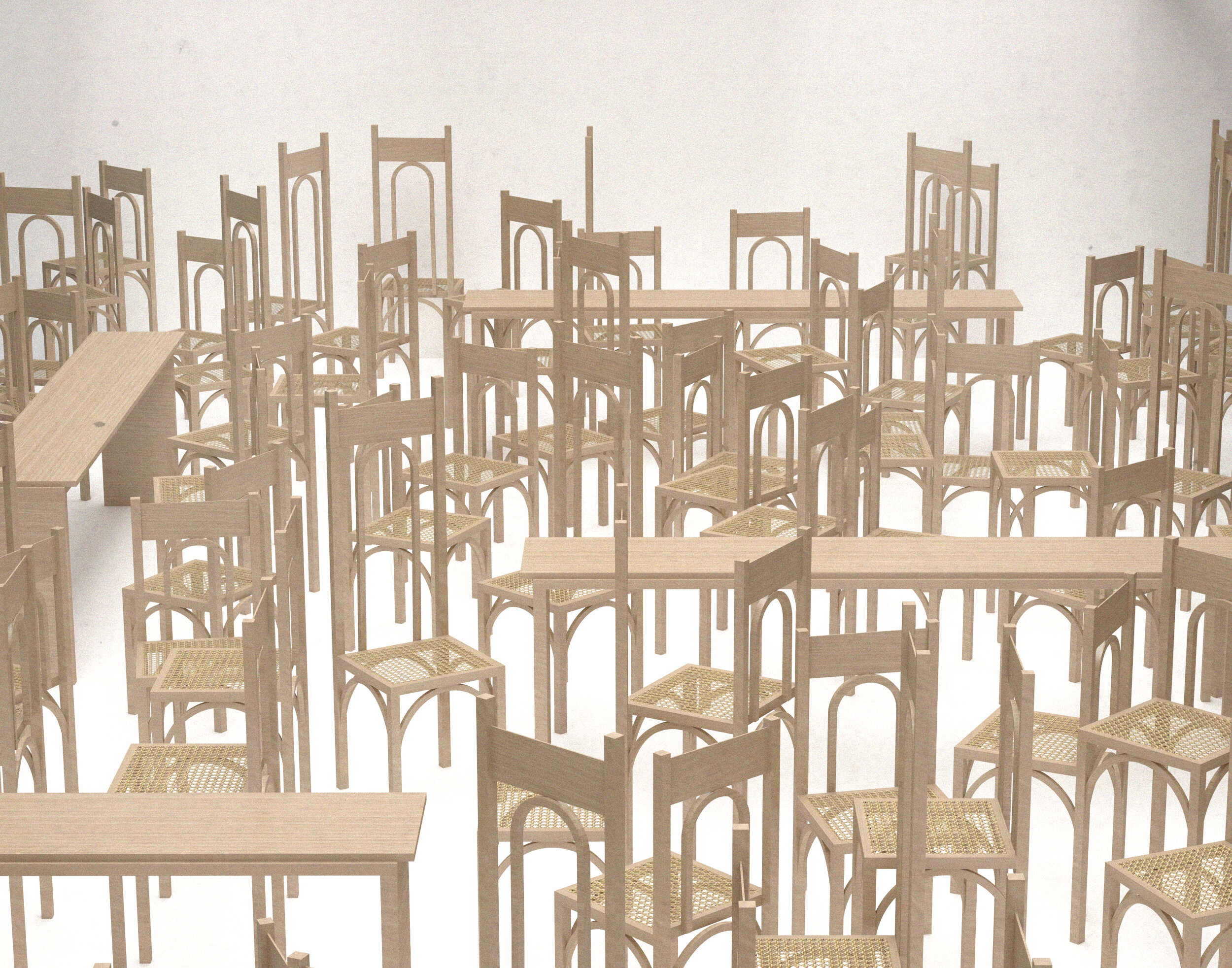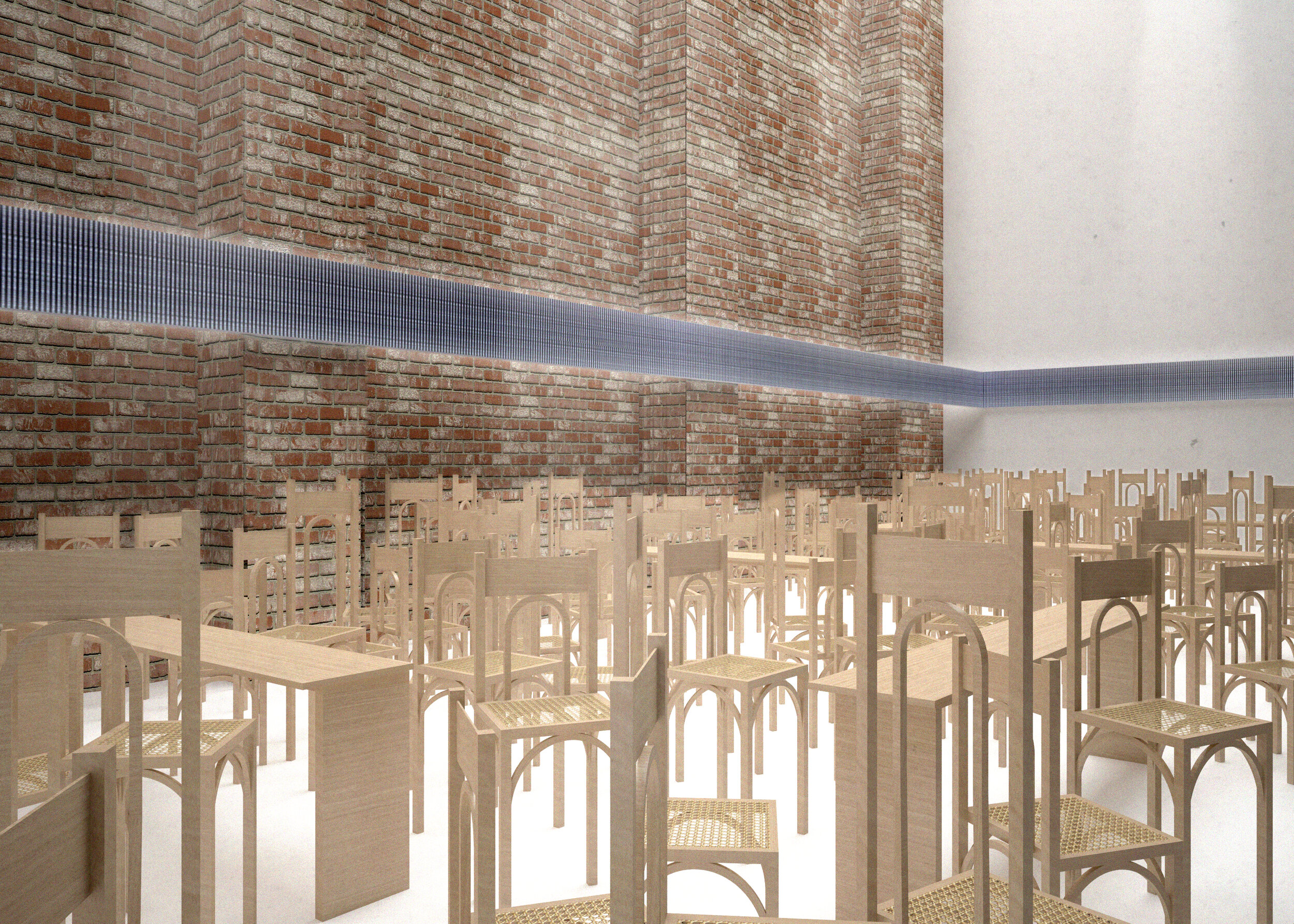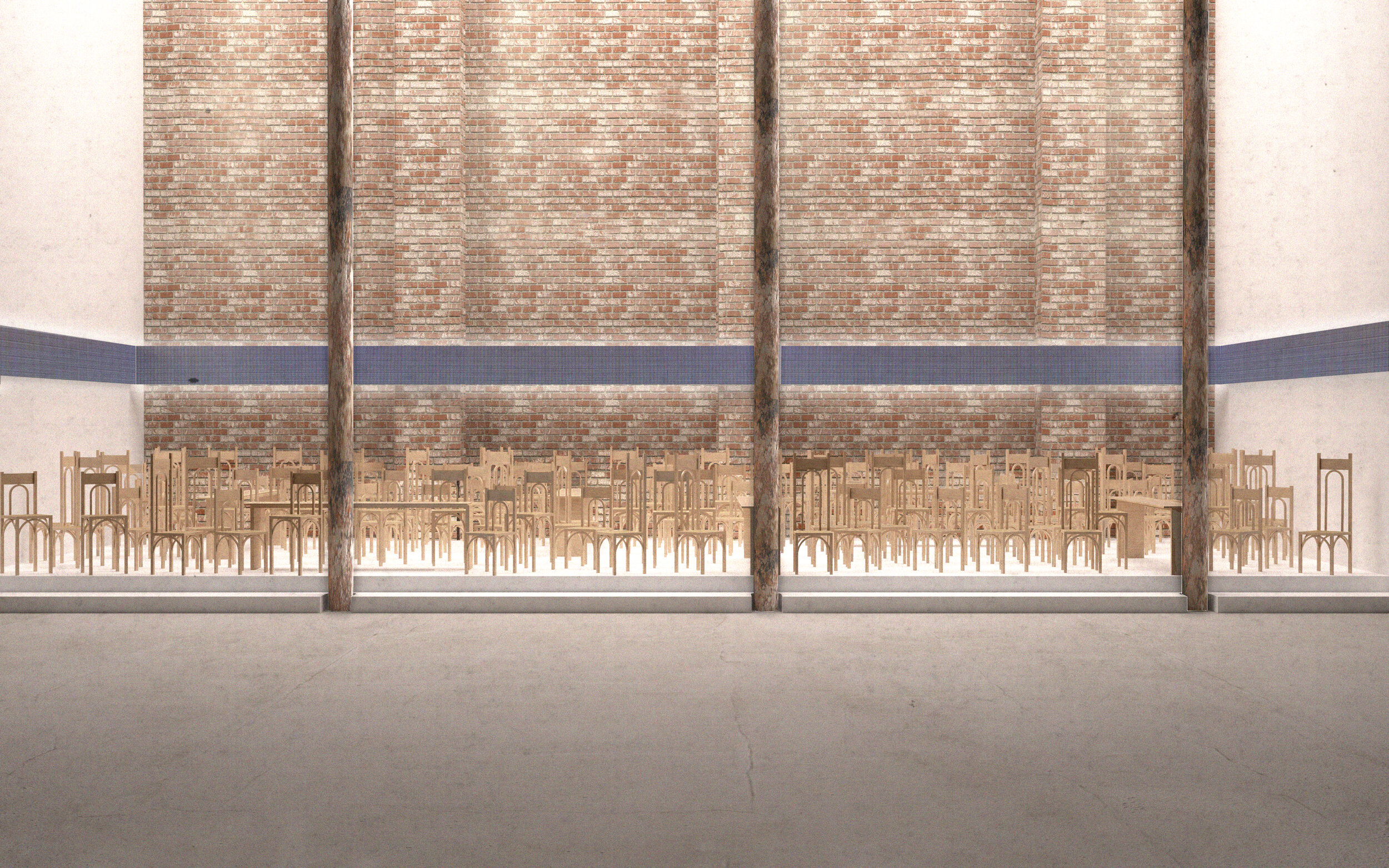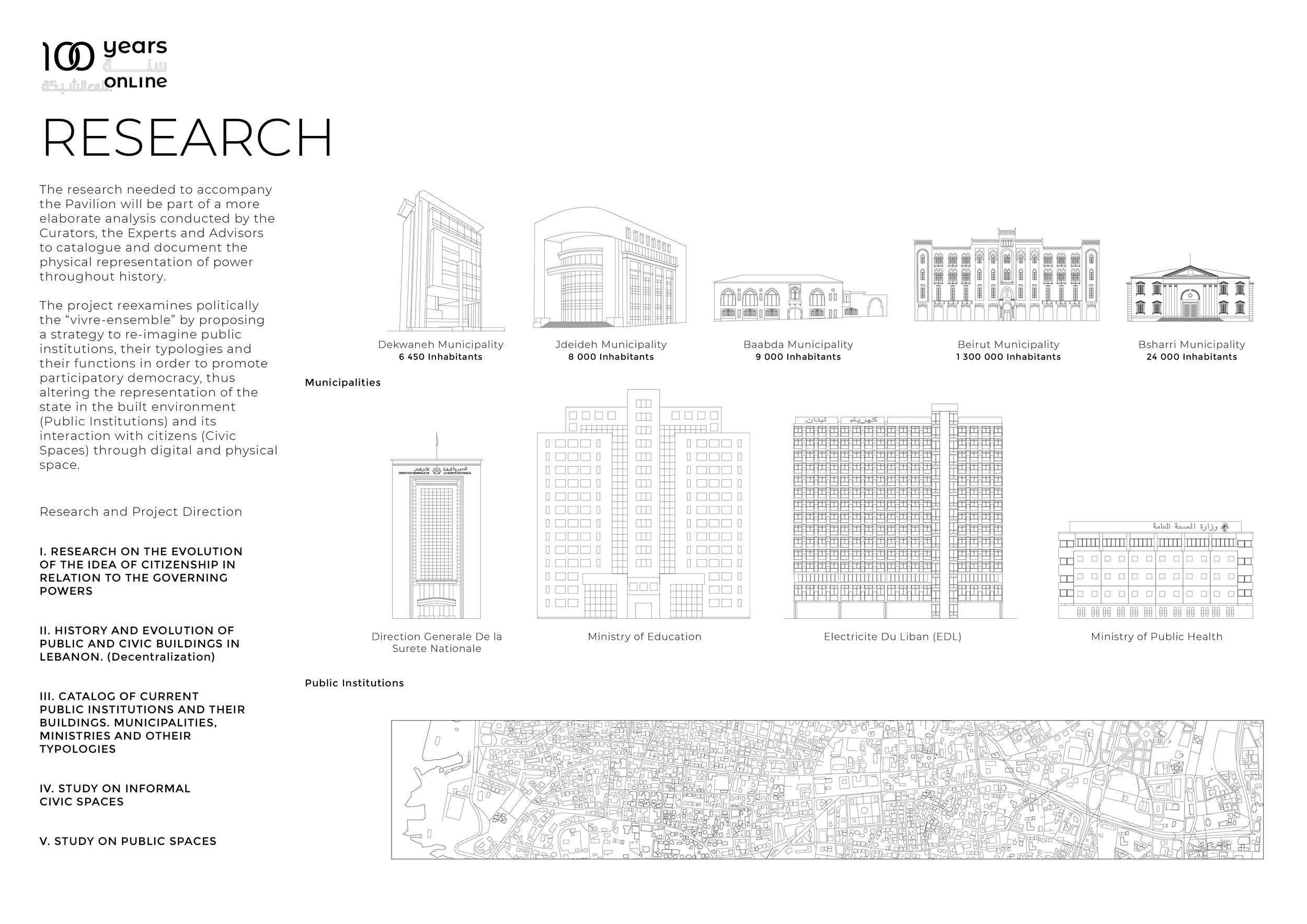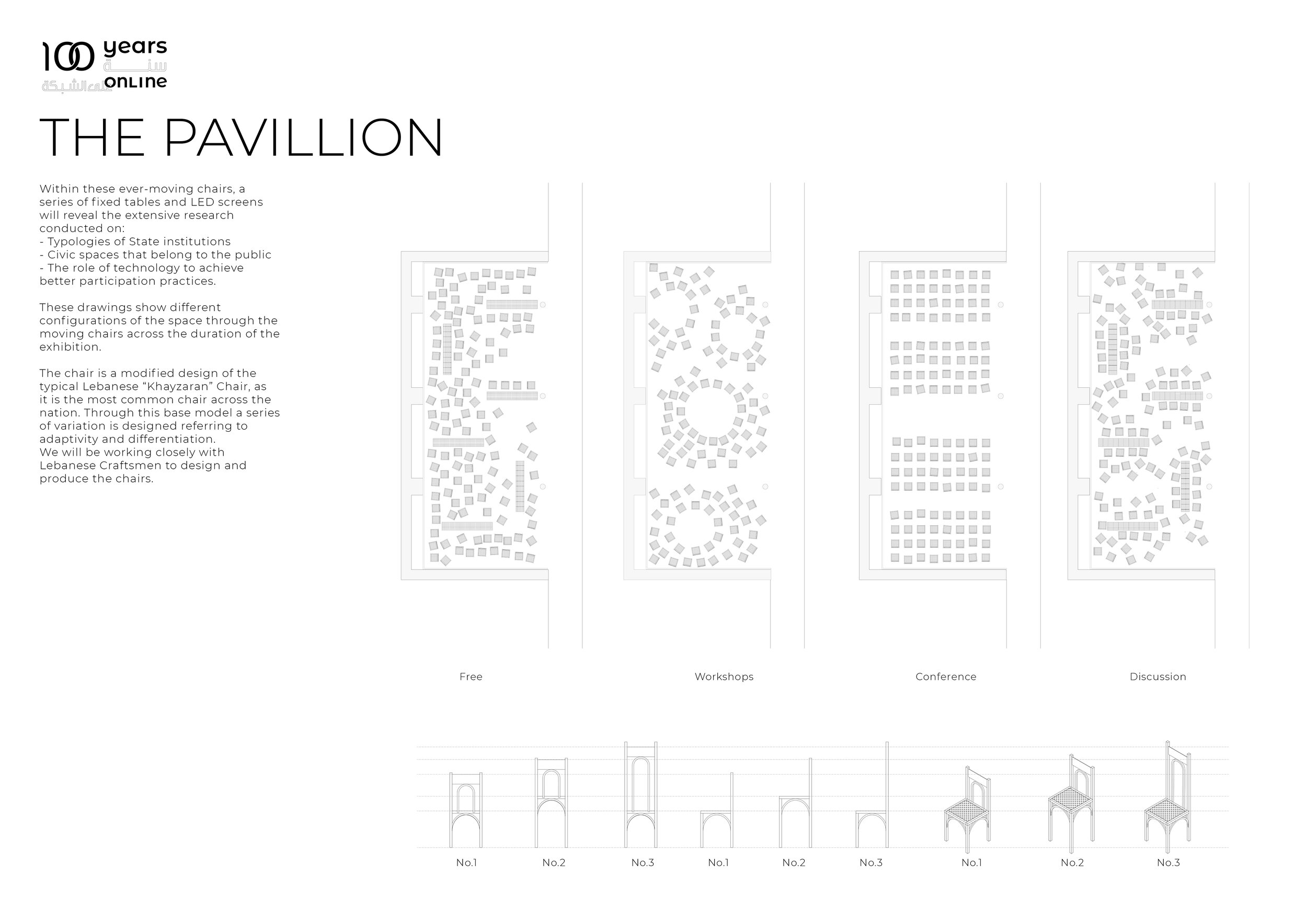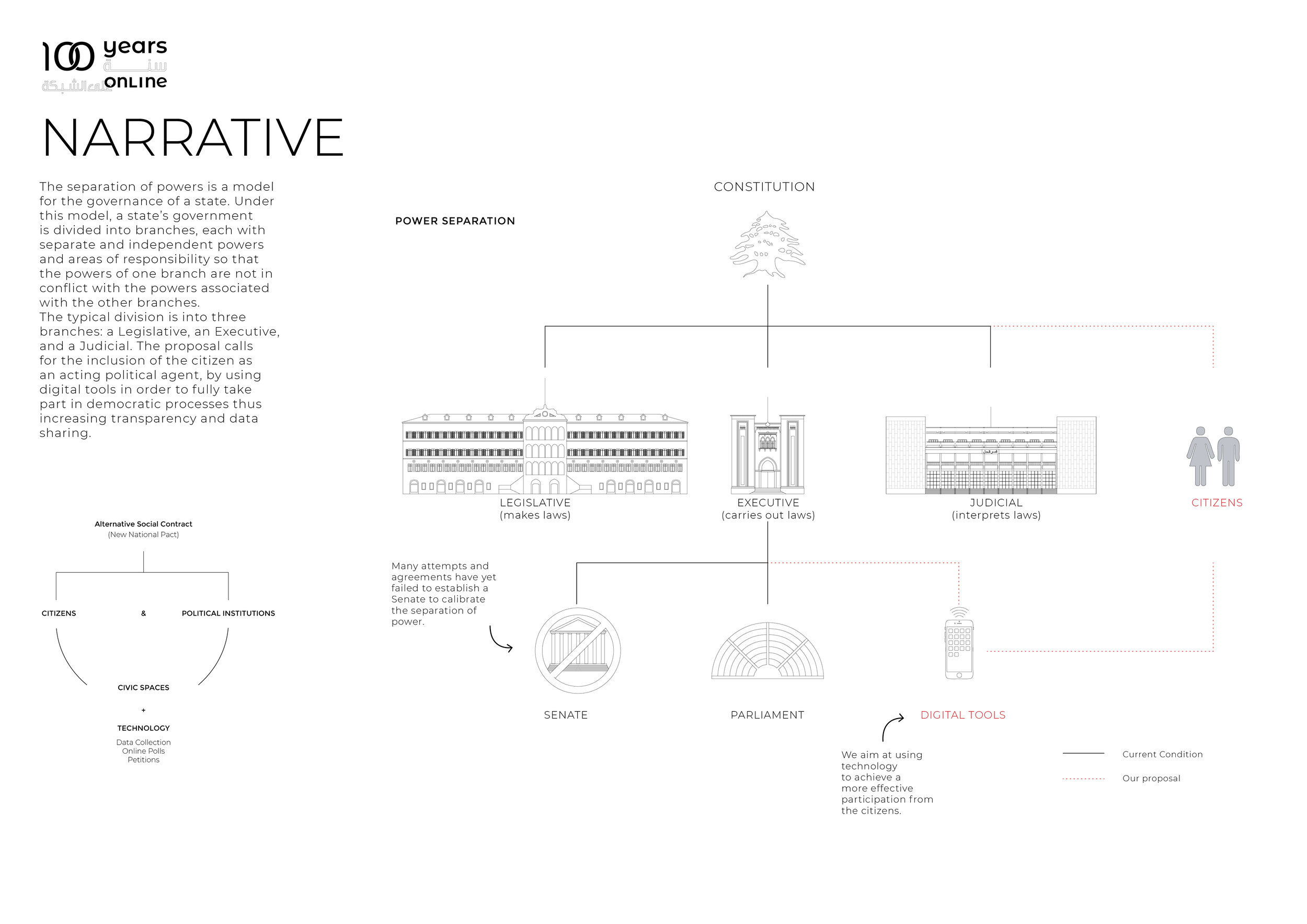HOW WILL WE LIVE TOGETHER ?
100 Years Online : Drafting Spaces of Citizenship.
Click on the image to scroll through
100 years Online is a critical research that examines the possibility of an alternative social contract between citizens and their political institutions, making appropriate use of architecture and technology in the construction of this contract. The proposal intends to elaborate a new “National Pact“ in which the citizen, through technology, becomes an acting political agent for democracy, advocating transparency and data sharing
By analysing the representation of political powers in the public realm through buildings and public spaces, as well as the use of particular architectural styles in the construction of an identity, the pavilion seeks to emphasis the urgency of revamping architectural processes for the construction of this ideal “vivre-ensemble”.
On the 1st of September 1920, General Gouraud proclaimed the creation of Greater Lebanon, laying the foundation of what will become a unique political project defined by the “National Pact”; The small country positioned itself as a pioneer in social and political reforms on a regional and global scale. Lebanon went through a series of radical reforms aimed at transitioning its governance system from feudalism to a more “western” democracy, setting the foundation for modern democratic institutions such as the Parliament, the Council of Ministers, Municipalities etc… In 1990, due to political instability the writing of the Taif agreement was a strategy, once again, to revive the fragile Lebanese “vivre-ensemble”.
Politics is the way in which social matters are understood and ordered, and through which people acquire greater control over a given situation. If civic space is the place where citizens and civil society organizations are able to participate and communicate, these places should incarnate their desires and values as a collective and contribute to the construction of an equitable and open society.
Recent results of elections around the World indicate that traditional political entities can no longer adopt and fully represent the complexities of our contemporary societies. The chat-room and later social media have become powerful extensions of physical forms of assembly in public space. However, the disembodied presence, delayed response and shifting identities presented by text-based platforms take away accountability and its consequences on civility and trust.
In a time in which traditional political systems are being re-questioned, the spaces in which these systems unfold and take shape, (State Institutions and Civic Places), have remained unchanged since the beginning of democracy in the World. We believe it is time to rethink the places where democratic practices occur and take shape and how they make room for collective decision-making processes. How can we exercise our roles as citizens if our civic spaces cease to represent us and if in times of doubt and conflict, they become secluded and inaccessible?
100 Years Online posits that in order to balance the power dynamics and empower citizens involvement in decision making processes of public matters, the State needs to rethink its form of democracy and devise new mechanisms, new architecture and better public spaces, to reinforce citizen participation. Empowering citizens by offering them more participation creates a belonging to the State instead of an attachment to a community.
The project reexamines politically the “vivre-ensemble” by proposing a strategy to re-imagine public institutions, their typologies and their functions in order to promote participatory democracy, thus altering the representation of the state in the built environment (Public Institutions) and its interaction with citizens (Civic Spaces) through digital or physical space. This new model will redefine the relationship between citizen, territory and state.
THE PAVILION:
Within the Lebanese context, “vivre-ensemble” can be translated into various small scales interactions around the dining table with family and friends or politically with the “Tawlet el Hewar” (table of dialogue). The simple act of sitting around a table triggers debate and discussions, offering a physical platform for each individual to interact and engage with each other at the same time. The pavilion with its 128 (representing physically the 128 representatives in the parliament) loosely deployed chairs showcases an interactive installation where the visitor has the possibility not only to discover the documentation but also to directly alter and displace the setting, endlessly redistributing the configuration. The absence of any central element in the pavilion reflects on the urgency to decentralize power structures in Lebanon. Within these ever-moving chairs, a series of fixed tables and LED screens will reveal the extensive research conducted on typologies of State institutions, Civic spaces and the role of Technology in achieving the finest participation practices
